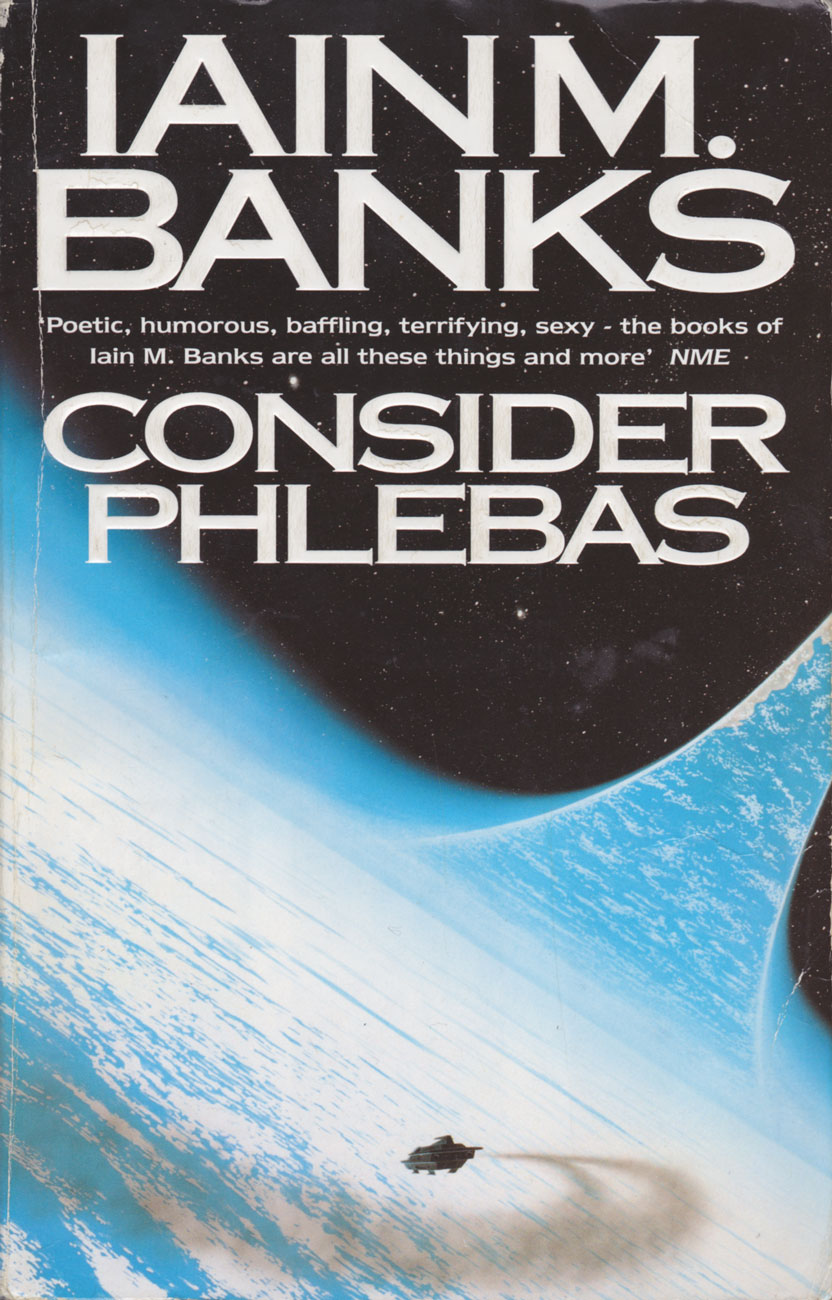Consider Phlebas

Review
I’ve been meaning to read ’s Culture series for more than two decades, so I was excited to finally get started. Unfortunately, Consider Phlebas was not a great introduction.
The book is considered a “space opera”, and there are some hints at interesting, grand ideas: a ship that can set off every warhead on board to send a coded message while still escaping the blast, a truly galactic scale war, and giant trains used as underground command centers. But the story itself feels small compared to those ideas. It is the story of one man, Horza.
Horza bumbles his way from situation to situation, each one worse than the last. He is unlikable, unskilled, and has little impact on the world.1 His vignettes are nasty, brutish, and short. ’s use of violence and gruesome imagery—something he is infamous for—is off putting.
I think that Horza’s bleak reality is supposed to contrast with his belief that his side of the war is the more enlightened one, but it was just unpleasant to read about him drowning in literal shit and having his fingers chewed off.
I hope that The Player of Games better.
-
Banks says this is the point:
I’ve read so many SF books where the action is terribly, terribly important to the fate of everyone and everything. That fate of a whole planet can hang on the outcome of a protagonist’s actions. Sometimes, the fate of the entire universe! Well, if you look at history, this is very unusual indeed. What usually happens is that people suffer and die and get involved in all sorts of mayhem and catastrophe and it doesn’t make that much difference in the end.
That was one of the ideas behind Consider Phlebas.